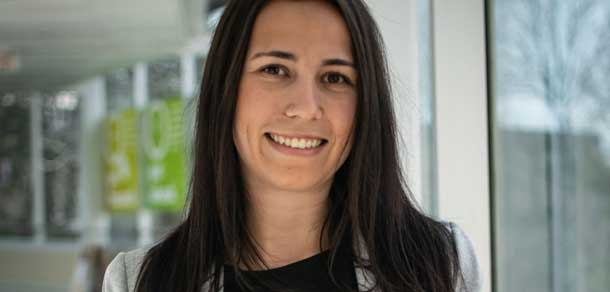This month The Professional Edge chats with Albert Engel, P.Eng., a semi-retired civil engineer from Regina.
Tell us about your personal and professional background.
I grew up on a farm in southwest Saskatchewan not far from Swift Current. I attended school in Wymark and Swift Current. I studied for three years at the University of Regina during the time when it was still part of the University of Saskatchewan, but ultimately graduated from the U of S in Saskatoon.
Why did you choose to go into engineering?
In high school, I had originally planned to go into chemistry, but my high school teacher and principal at Wymark had an engineering degree and convinced me that engineering would have more job opportunities. That proved to be good advice. I’m not knocking chemistry. I just think there are fewer jobs in the field. I ultimately decided not to become a chemical engineer because of my interests in water conservation.
What was your biggest challenge in college?
I was lucky to have a number of scholarships and support from my parents, so I never had financial challenges. But, coming from a small-town high school, I had never taken calculus so that baffled me when I took it in college. We were also required to take a bit of electrical engineering, but that wasn’t my schtick. I never really took to that.
What was your first job after college?
I started working with the Prairie Farm Rehabilitation Administration (PFRA) right after college and stayed with them for 34 years. I know that’s abnormal these days when most people work two or three careers in their working lives. Looking back, there were hassles with government work, especially the politics, but I enjoyed my career with PFRA.
What do you feel was your single greatest accomplishment as an engineer?
PFRA periodically seconded staff to the Canadian International Development Agency which led me to assist in the engineering of small dams and irrigation projects in Ethiopia. I took 10 trips there and spent about a year in total in the country.
Ethiopia is relatively stable politically. It is a beautiful country with a nice climate. It has a great but mostly undeveloped tourist potential.
Its infrastructure made great strides while we were there. The people were extraordinarily friendly – not just those we worked with but also people on the street we encountered. By African standards, it is a very safe country. I wouldn’t want to walk around at night in the capital Addis Ababa, but during the day I felt perfectly safe.
This is not to say they don’t have struggles. After our first trip in 1998, the project was postponed until the 2000s because a war broke out between Ethiopia and Eretria.
<
The country is rich with history. Ethiopians are very proud of the fact they were the only African country never to have been colonized. It is full of many historic sites, including a place that they contend is the resting place of the Arc of the Covenant.
<
We were treated so well that my wife Laura joined me on three trips and did some volunteer work there. We’ve often talked about returning for a vacation.
What are your interests outside of work?
I don’t have hobbies! One of the reasons I’m only semi-retired is to keep busy. My wife and I are nvolved with our family and our church and we enjoy travelling.
I’ve also travelled through my work with an organization called Engineering Ministries International, in which engineers volunteer to assist with overseas mission work. This has taken me back to Africa to work in places like the Democratic Republic of Congo and Kenya.
Here at home, I continue to do engineering consulting work for various jurisdictions and farmers. This included the engineering design and construction supervision for the Wakamow Valley Authority pedestrian suspension bridge across the Moose Jaw River.
Have you ever met anyone famous?
I didn’t meet them face to face but, when I was working in Ethiopia, the CBC celebrity Rick Mercer and then-federal MP Belinda Stronach toured our project.
What is your favourite vacation spot?
In summer places in southern BC like Fernie and Cranbrook are my favourite and in winter it’s Arizona.
What is your favourite book?
I enjoyed Romeo Dallaire’s Shake Hands with the Devil. It was an eye opener and resonated with my experiences in Africa, even though I was never in a conflict zone. The recurrent turmoil that affects those societies is very sad.
What do you do for professional development?
The continuing work I do in varied civil engineering projects helps me keep on top of things. Recently, I did work that involved the Water Security Agency through which I took a course on the province’s new management strategy for drainage. Over the years, I’ve attended conferences and workshops in my field.
Who had the greatest influence on your life and career?
In terms of life, my parents. They gave me a strong work ethic and instilled in me the importance of a strong faith.
As for my career, I’d say Gerry Wetterstrand, P.Eng. who encouraged me to get involved in international work. He led a number of expeditions I was on starting in the 1980s.
The most recent time I worked with him was in 2007 on a CIDA mission to Afghanistan where we provided engineering input for a dam near Kandahar – a project ultimately taken over by the US Army Corps of Engineers. That was an interesting trip.
When we were in Kabul, the Canadian embassy arranged meetings for us. Once we prepared to go on site, the Canadian military took excellent care of us. They whisked us around everywhere in well guarded armoured vehicles, military airplanes and Blackhawk helicopters. I have a lot of great memories from my work abroad and I owe that to Gerry.
